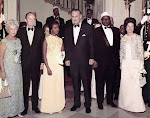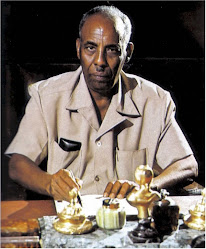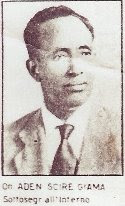Farah Abdi Warsameh/AP
A suicide bombing in Somalia's capital, Mogadishu, left at least 32 people dead. Six of the victims were members of the embattled Somali parliament, and the government blamed the Al Qaeda-linked insurgent group, Al Shabab.
suicide strike by two bombers suspected to have belonged to an Al Qaeda-linked group in Somalia killed at least 32 people Tuesday, including six legislators from the country's Western-funded parliament. Somali Minister of Information Abdirahman Omar Osman immediately blamed Al Shabab, the country's leading Islamist insurgent group, for the attack. Although Somalia now has a parliament and international military assistance, the central government's control over the country is nominal. Al Shabab, an Islamist insurgent movement on the US government's list of terrorist organizations, has carried out similar attacks in the past. In July, the group carried out its first international attack in neighboring Uganda, murdering over 76 people. Tuesday's attack came the day after Al Shabab warned of a massive war against "invaders" in Somalia, which appeared to be a reference to the 6,300 African Union (AU) peacekeepers from Uganda and Burundi who are protecting the government from collapse.Carrying pistols and strapped with suicide vests, the two men disguised themselves as government soldiers to launch their attack on a hotel in the south of the capital, Mogadishu, close to the presidential palace. Several members of parliament and government officials were conducting a meeting close to the lobby when the raid started midmorning. Two armed men entered the hotel, one of them blew himself up and the other one started shooting people, said Abdullahi Abdi, a Somali police official at the scene. The second man detonated his suicide device as government soldiers fought back in what was described as a half-hour gun-battle. Witnesses who fled the scene reported bodies lying in rubble in the hotel's foyer. "They rained gunfire on everybody. Nobody stood a chance. I was lucky because they aimed at me, but I jumped out of the window and survived," hotel employee Adan Mohamed told the French news agency, AFP. "People were screaming, there was total panic. When they decided they had finished killing everybody, they climbed to the balcony and started opening fire on government forces outside the hotel."An 11-year-old boy and a woman selling tea in front of the building were among the dead said Barigye Bahoku, spokesman for the African Union peacekeeping mission in Somalia (AMISOM).
Deadliest attack
Mr. Osman said that six members of parliament had died in the blasts, as well as five government soldiers and 20 civilians, making it the deadliest ever attack against the transitional federal government.
Another man died from his injuries later and more than 40 people were being treated at hospitals in the capital. Al Shabab's motive was to terrorize the Somali people, Mr. Osman said in a statement. "This is a deplorable act in this holy month of Ramadan. It shows their brutality and lack of respect for humanity."Uganda confirmed Monday that it had recently sent hundreds of reinforcements to Mogadishu to battle the insurgents, following Al Shabab's suicide bombings of crowds watching the World Cup final in Kampala which killed 76 people. More than 21,000 Somalis have been killed since 2007 and more than 1.5 million have fled their homes. Somalia's insurgency has been lauded by Al Qaeda and reportedly boosted by scores of foreign fighters who've fought in guerrilla wars in Afghanistan, Pakistan, and Iraq. The fighting has intensified in the past 12 months, with regular mortar attacks against the parliament and President Sheikh Sharif Ahmed's compound. Four ministers died when an Al Shabab suicide bomber dressed as a woman hit another Mogadishu hotel during a university graduation ceremony in December Christian Science Monitor




.jpg)











No comments:
Post a Comment